Tumor Lysis Syndrome Risk Factors
Tumor lysis syndrome risk factors. Massive tumor cell lysis releases potassium into the extracel-lular environment leading to severe hyperkalemia when uptake capacity by muscle and liver is exceeded especially in Table 2. Risk factors for TLS include bulky disease extensive metastases high proliferative rate high sensitivity to anticancer therapy type of anticancer therapy eg using a combination therapy. Cytokines cause hypotension inflammation and acute kidney injury which increase the risk for the tumor lysis syndrome.
Additional risk factors for tumor lysis syndrome. The manifestation of the tumor lysis syndrome depends on various. Malignancies with high risk for tumor lysis syndrome Burkitts lymphomaleukemia.
Tumor Lysis Syndrome Risk Factors Diagnosis and Management Rebekah A. The factors that increase risk of tumor lysis syndrome include elevated LDH extensive bone marrow involvement pre-existing renal disease and reduced urinary output advance age and the use of. Well known since at least ninety years ago this condition can be misdiagnosed and incorrectly managed due to rapid onset of symptoms sometimes overlapping with cancer-derived clinical conditions.
Tumor lysis syndrome TLS is a potentially fatal complication of induction therapy for several types of malignancies. Tumor lysis syndrome TLS is an oncologic emergency that is caused by massive tumor cell lysis with the release of large amounts of potassium phosphate and nucleic acids into the systemic circulation. Tumor lysis syndrome TLS is a potentially fatal complication of induction therapy for several types of malignancies.
High-grade lymphoma with bulky disease diffuse large B-cell lymphoma and T-cell non-Hodgkins lymphoma. Baseline LDH 1500 IUL. This syndrome is most common in people with blood-related cancers including some leukemias and lymphomas.
Tumor lysis syndrome TLS occurs when tumor cells break apart lyse and release their contents into the bloodstream so rapidly that normal homeostatic mechanisms cannot clear the cellular. Electrolyte derangements and even downstream complications may also occur prior to the initial presentation to a medical provider before an oncologic diagnosis has been established. If they cant keep up you can develop something called tumor lysis syndrome TLS.
Risk classification of TLS according to type of malignancy extent of disease and presence or absence of renal dysfunction Type of malignancy Risk Solid. Burns MD Irina Topoz MD and Sally L.
The manifestation of the tumor lysis syndrome depends on various.
Acute leukemia AML or ALL with WBC 25000-100000. Tumor lysis syndrome TLS is an oncologic emergency that is caused by massive tumor cell lysis with the release of large amounts of potassium phosphate and nucleic acids into the systemic circulation. The factors that increase risk of tumor lysis syndrome include elevated LDH extensive bone marrow involvement pre-existing renal disease and reduced urinary output advance age and the use of. Electrolyte derangements and even downstream complications may also occur prior to the initial presentation to a medical provider before an oncologic diagnosis has been established. Tumor Lysis Syndrome Risk Factors Diagnosis and Management Rebekah A. Massive tumor cell lysis releases potassium into the extracel-lular environment leading to severe hyperkalemia when uptake capacity by muscle and liver is exceeded especially in Table 2. Electrolyte derangements and even downstream complications may also occur prior to the initial presentation to a medical provider before an oncologic diagnosis has been established. Electrolyte derangements and even downstream complications may also occur prior to. This syndrome is most common in people with blood-related cancers including some leukemias and lymphomas.
High-grade lymphoma with bulky disease diffuse large B-cell lymphoma and T-cell non-Hodgkins lymphoma. Electrolyte derangements and even downstream complications may also occur prior to. Massive tumor cell lysis releases potassium into the extracel-lular environment leading to severe hyperkalemia when uptake capacity by muscle and liver is exceeded especially in Table 2. High-grade lymphoma with bulky disease diffuse large B-cell lymphoma and T-cell non-Hodgkins lymphoma. If they cant keep up you can develop something called tumor lysis syndrome TLS. Electrolyte derangements and even downstream complications may also occur prior to the initial presentation to a medical provider before an oncologic diagnosis has been established. Tumor lysis syndrome TLS is a rare but potentially life-threatening complication of neoplasms preferentially hematological malignancies.
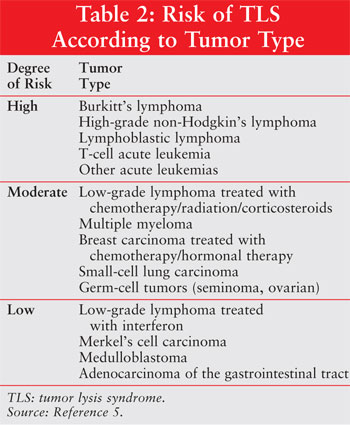

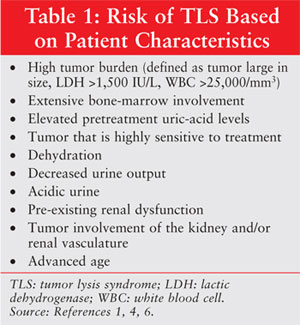
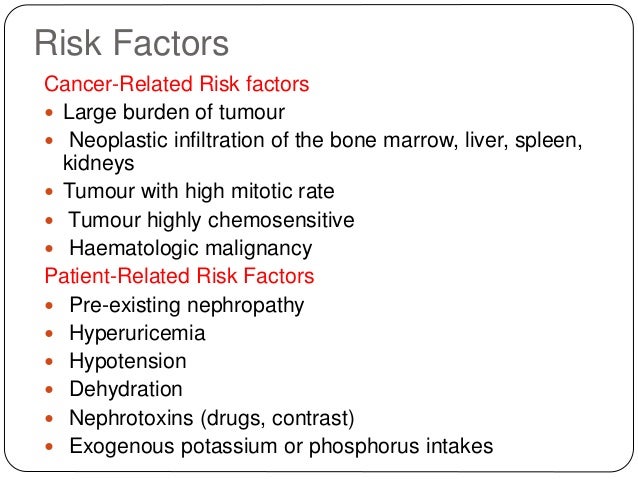






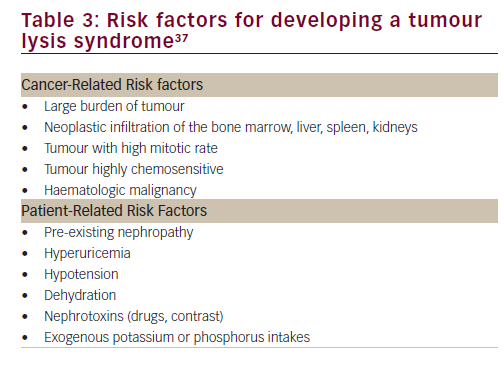
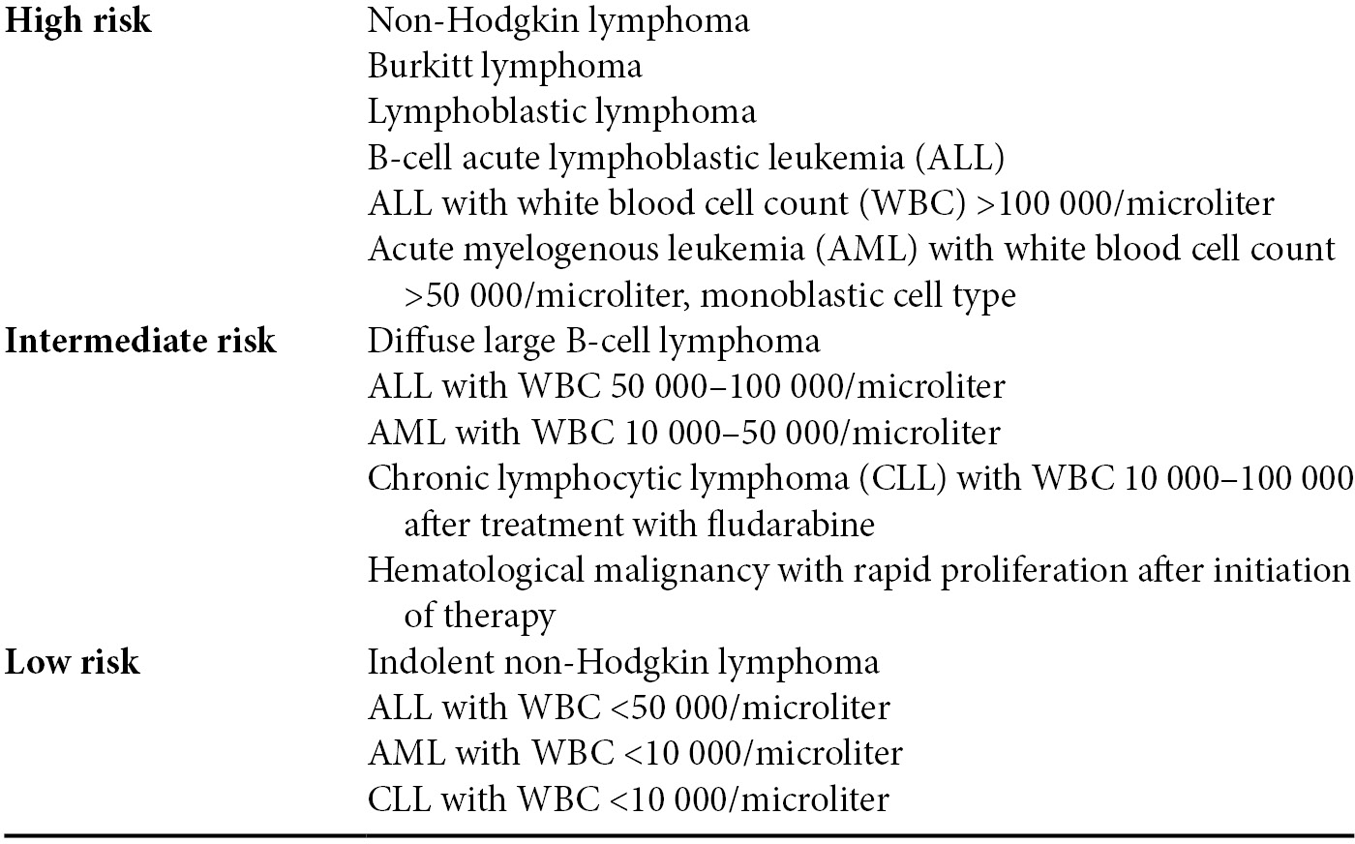
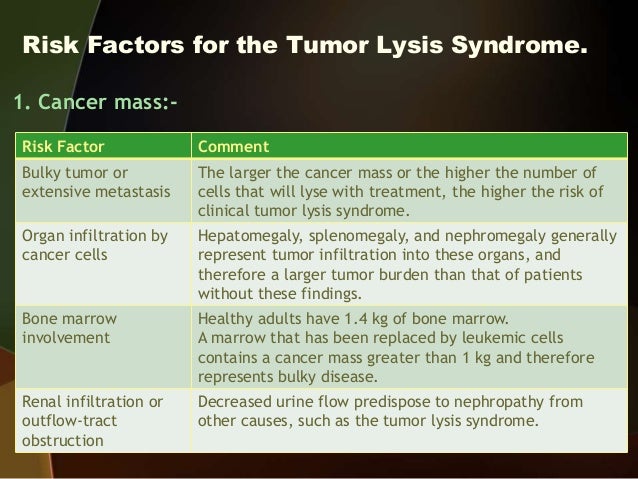



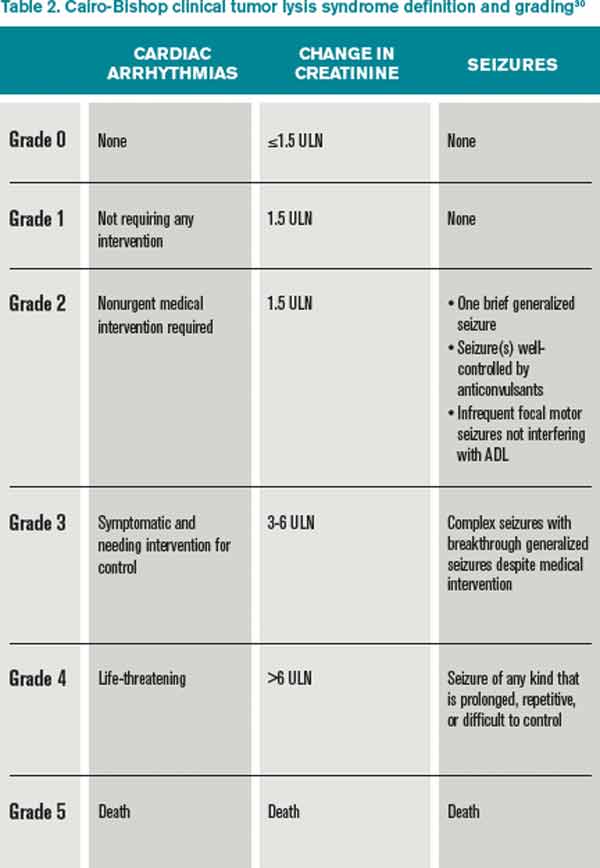

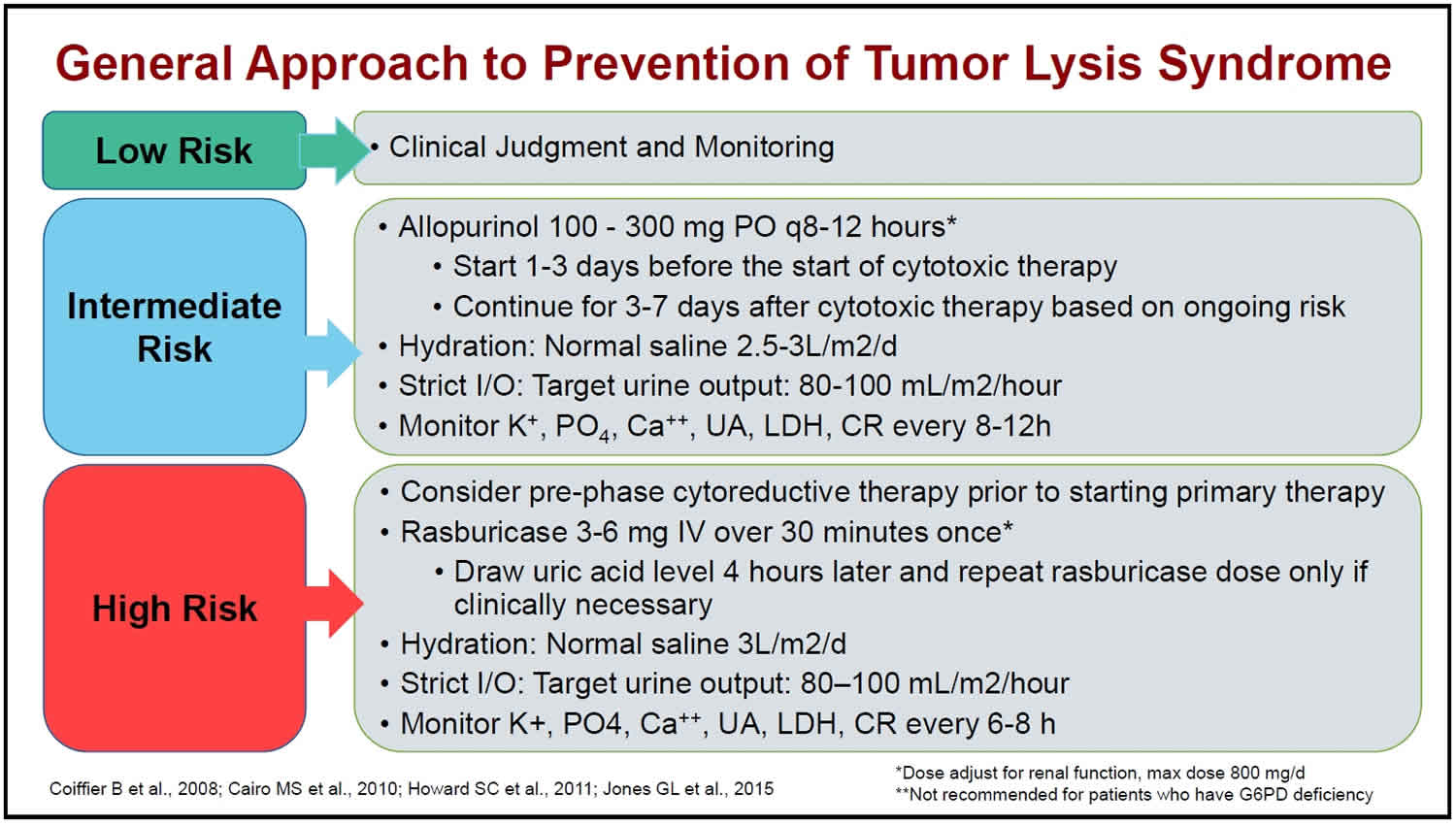



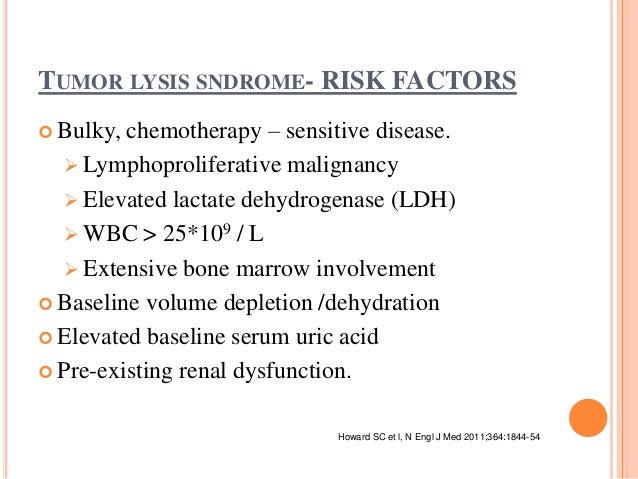


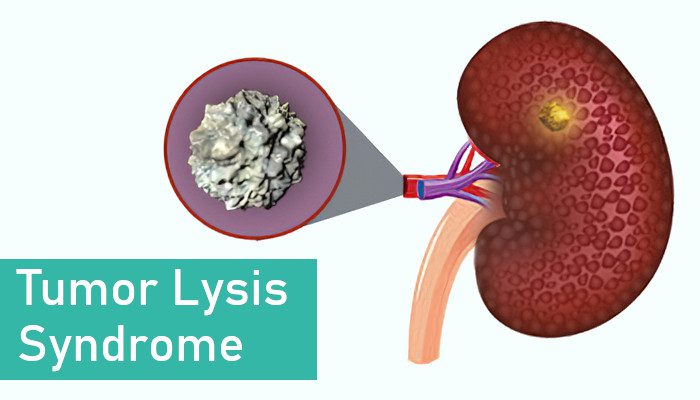



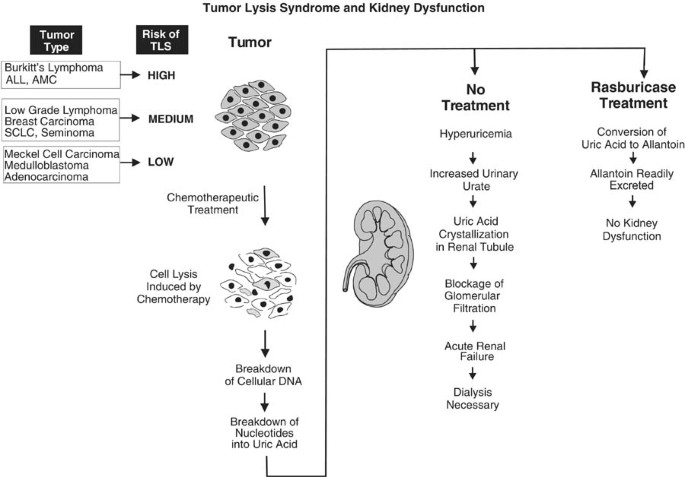

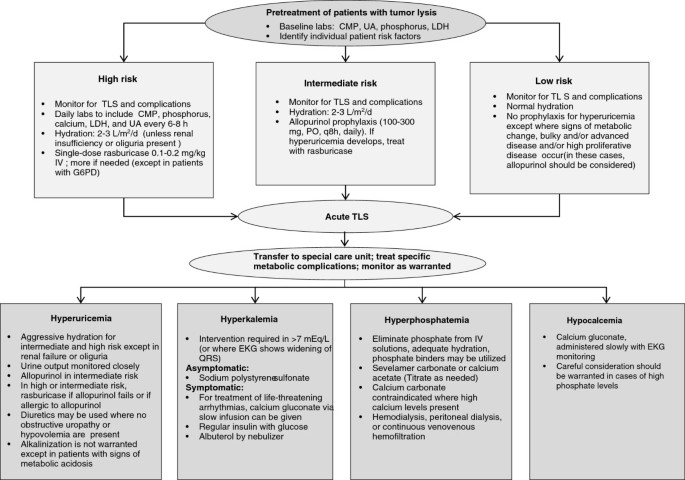
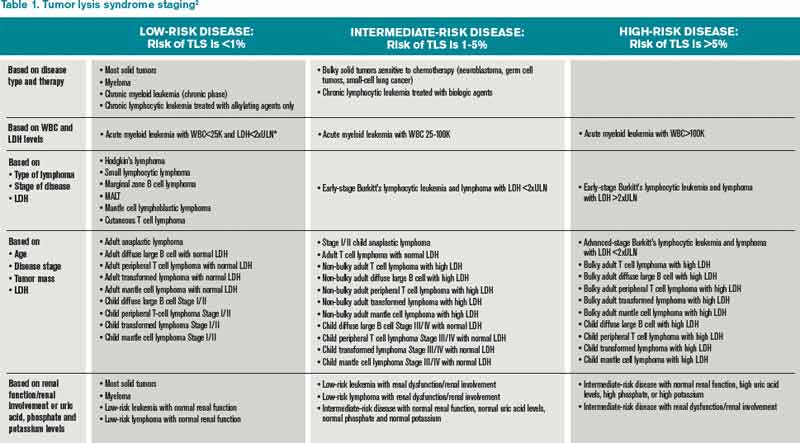
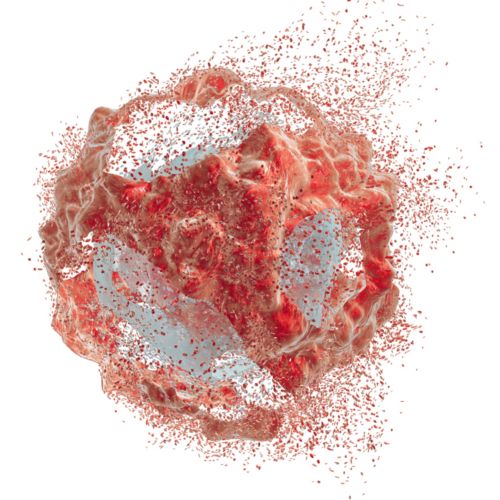
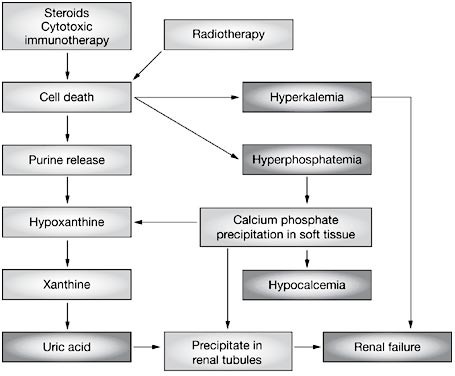



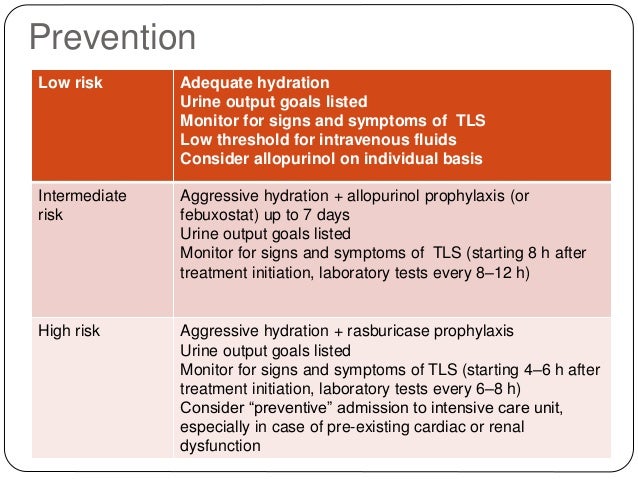
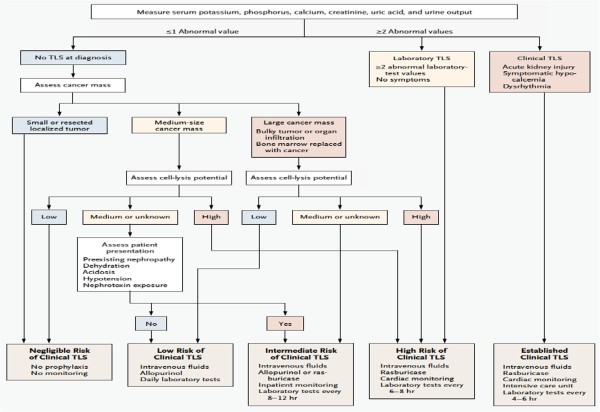
Post a Comment for "Tumor Lysis Syndrome Risk Factors"